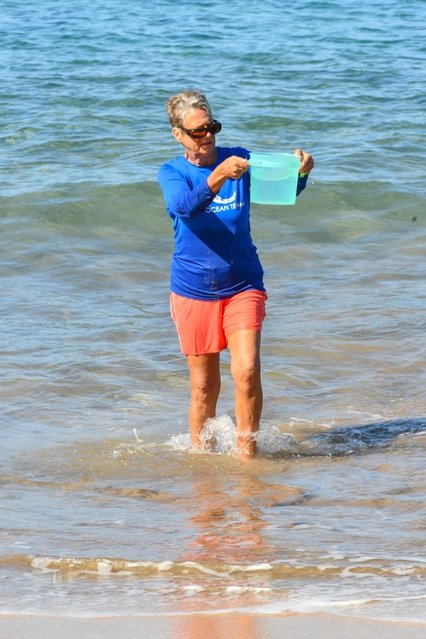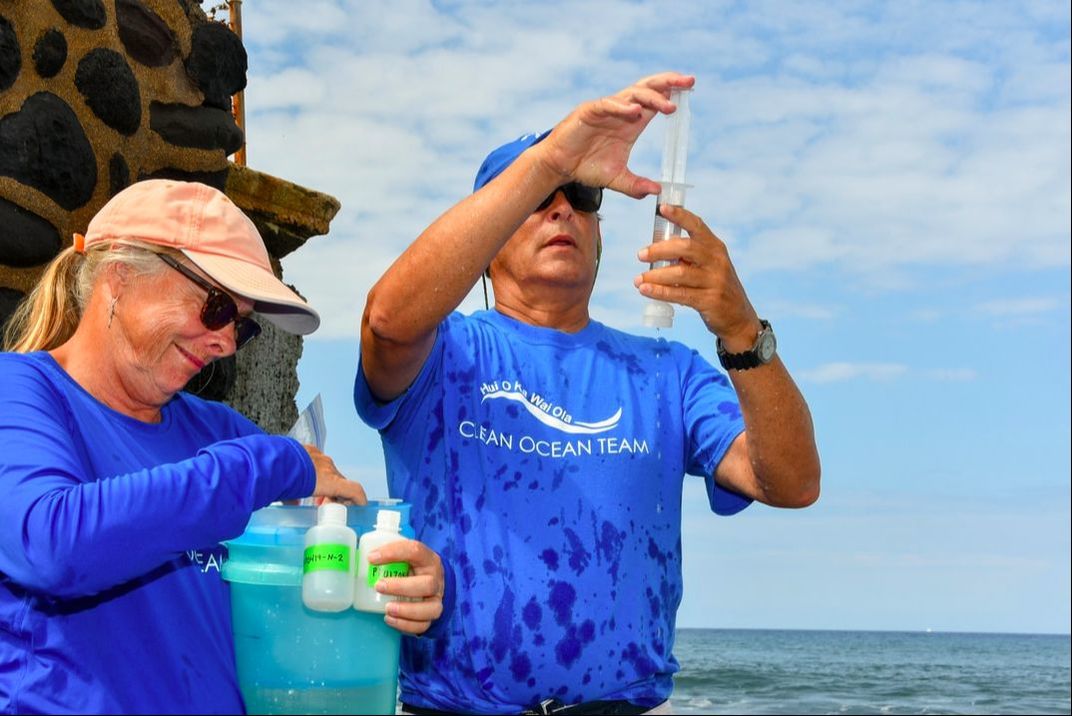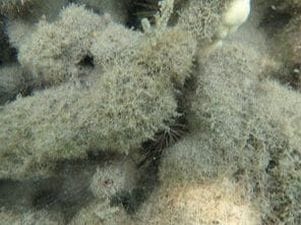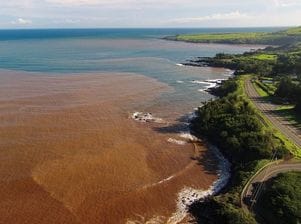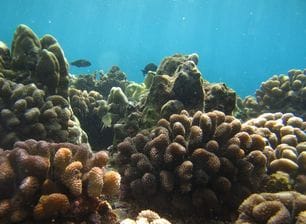Does this water look clean to you?
|
Looking at this bucket and vial of clear ocean water, can you tell if the water is clean? This is a tricky question because not all pollutants make water look dirty. Water gets contaminated as it passes through and over the earth, transporting substances such as animal waste, fertilizers, waste water, and bacteria to the ocean which we can then detect through our samples.The tests we run for nutrients including nitrogen and phosphorous, sediment, salinity, pH, temperature, and dissolved oxygen (DO) help to reveal the true quality of water regardless of how it looks.
|
Nutrients |
Sediments |
Ocean Chemistry |
|
Nutrients, including nitrogen and phosphorus, can indicate agricultural runoff and sewage pollution. Once in the ocean, these nutrients can lead to an overgrowth of algae. Algae, particularly invasive species, quickly out-compete coral reefs for sunlight and overrun large tracts of living reef. Water quality monitoring allows us to identify areas of high nutrients, and then pinpoint up-slope areas that need to be addressed as sources.
|
Sediments can be carried from the land to the ocean by streams, flooding, and storm water runoff. When large amounts of sediment are deposited into the ocean, the near shore waters can turn brown – leading to a “brown water event”. Sediments block sunlight from reaching reefs and can smother corals. Brown water events often indicate that there are issues up-slope, including grading or clearing of land.
|
Coral reefs are fragile ecosystems, and are susceptible to even the slightest changes in ocean chemistry. Coral reefs can be severely damaged when ocean temperatures become too warm, ocean water becomes too acidic, and/or too much freshwater enters the reef ecosystem. Changes in ocean chemistry can be caused by both global level impacts (such as climate change), and localized events. Measuring samples for salinity, pH, temperature, and dissolved oxygen (DO) allows us to compare changes in reef health to changes in water quality.
|
Photos: Header - Bill Rathfon; Does this water look clean to you - Bruce Forrester; Nutrients - Maui Nui Marine Resource Council; Sediments - Bill Rathfon; Ocean Chemistry - The Nature Conservancy (Alana Yurkanin)

